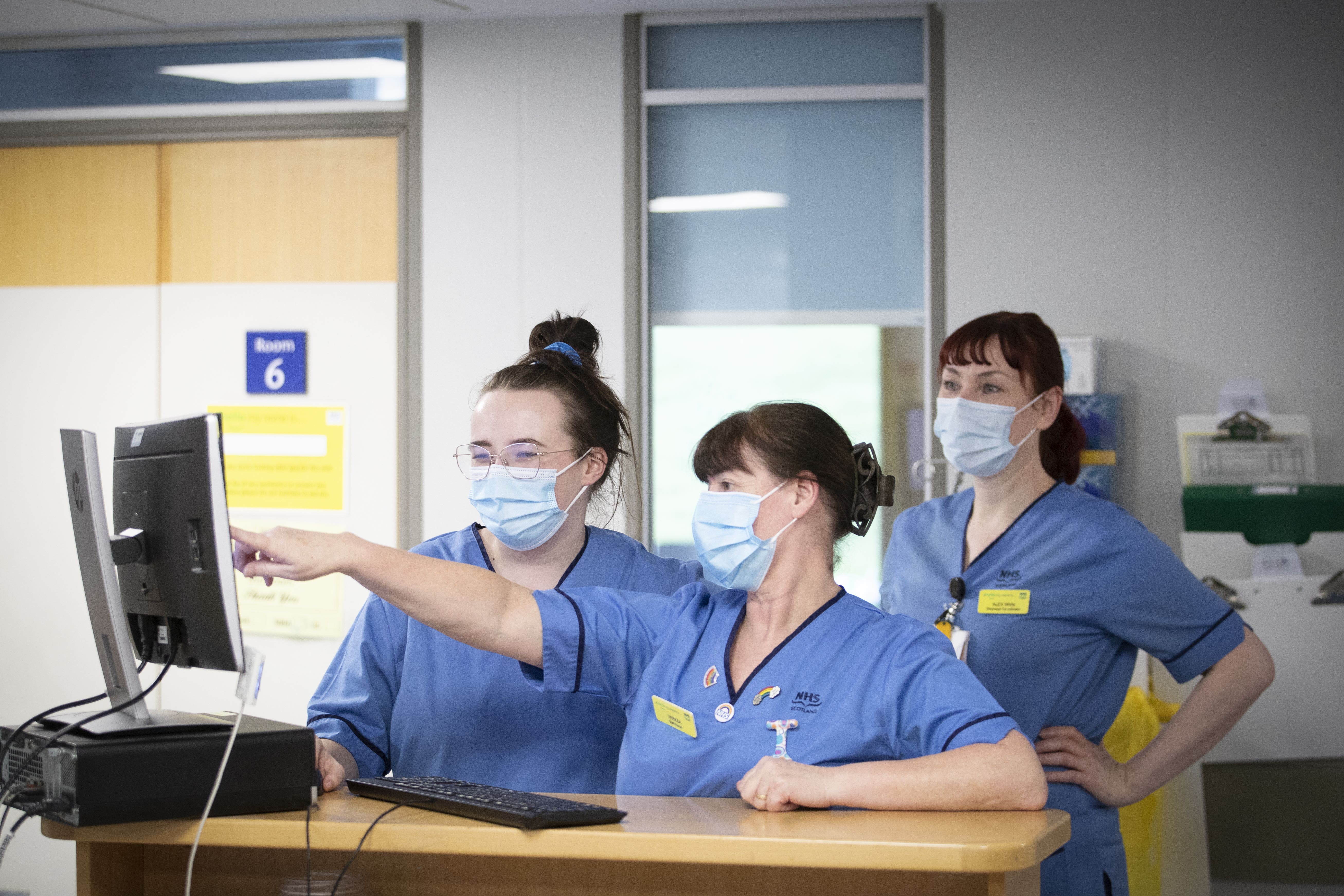Nurses to strike next month over pay after talks offer is rejected
Members of the RCN will stage their first ever national walkout in worsening dispute.

Nurses are to hold two days of strike action next month in a dramatic escalation of the pay row raging across the NHS.
The Royal College of Nursing (RCN) announced its members will stage their first ever national walk out on December 15 and 20.
The RCN said it was calling strikes after the UK Government turned down its offer of formal, detailed negotiations as an alternative to industrial action.
The strikes will take place in England, Wales and Northern Ireland. The RCN said it will announce which particular NHS employers be striking next week, when formal notifications are submitted.
In Scotland, the RCN has paused announcing strike action after the government there reopened NHS pay negotiations.
Earlier this month, the RCN announced that nursing staff at the majority of NHS employers across the UK had voted to take strike action over pay and patient safety.
Nursing staff have had enough of being taken for granted, enough of low pay and unsafe staffing levels
The RCN said that despite a pay rise of around £1,400 awarded in the summer, experienced nurses are worse off by 20% in real terms due to successive below-inflation awards since 2010.
RCN General Secretary Pat Cullen said: “Ministers have had more than two weeks since we confirmed that our members felt such injustice that they would strike for the first time.
“My offer of formal negotiations was declined and, instead, ministers have chosen strike action. They have the power and the means to stop this by opening serious talks that address our dispute.
“Nursing staff have had enough of being taken for granted, enough of low pay and unsafe staffing levels, enough of not being able to give our patients the care they deserve.”
The RCN said the economic argument for paying nursing staff fairly was clear when billions of pounds was being spent on agency staff to plug workforce gaps.
It added that in the last year, 25,000 nursing staff around the UK left the Nursing and Midwifery Council register, with poor pay contributing to staff shortages across the UK, which it warned was affecting patient safety.
There are 47,000 unfilled registered nurse posts in England’s NHS alone, said the RCN.
The College maintains that surveys have shown huge public support for nurses receiving a bigger pay rise, as well as the right to take industrial action.
Other health unions are also balloting workers for industrial action, while ambulance staff in Scotland are due to walk out on Monday.
A ballot among hundreds of thousands of Unison members closes on Friday, and among Unite’s NHS members next week.
Midwives and physiotherapists are also voting on strikes, while a ballot of junior doctors opens in the new year.
Health unions have been warning for months that workers are quitting in huge numbers over pay and low morale, leading to staff shortages in hospitals and other parts of the NHS.
Health and Social Care Secretary Steve Barclay said: “I am hugely grateful for the hard work and dedication of nurses and deeply regret some union members will be taking industrial action.
Why on Earth is the Health Secretary refusing to negotiate with nurses?
“These are challenging times for everyone and the economic circumstances mean the RCN’s demands, which on current figures are a 19.2% pay rise, costing £10 billion a year, are not affordable.
“We have prioritised the NHS with an extra £6.6 billion, on top of previous record funding, and accepted the recommendations of the independent NHS Pay Review Body to give nurses a fair pay rise of at least £1,400 this year. This means a newly qualified nurse will typically earn over £31,000 a year – with more senior nurses earning much more than that – they will also receive a pension contribution worth 20% of their salary.
“Our priority is keeping patients safe. The NHS has tried and tested plans in place to minimise disruption and ensure emergency services continue to operate.”
Wes Streeting, shadow health secretary, said: “Why on Earth is the Health Secretary refusing to negotiate with nurses? Patients already can’t get treated on time, strike action is the last thing they need, yet the Government is letting this happen. Patients will never forgive the Conservatives for this negligence.
“First the Government refused to speak to the health unions all summer, now they refuse to negotiate. If the Conservatives have given up governing, they should stand aside for Labour.
“There were no strikes in the NHS during the 13 years of the last Labour government and the cavalry is coming with the next Labour government. We will abolish non-doms to launch the biggest expansion of medical training in history, giving the NHS the staff it needs so that nurses aren’t overworked and patients are seen on time.”
Bookmark popover
Removed from bookmarks